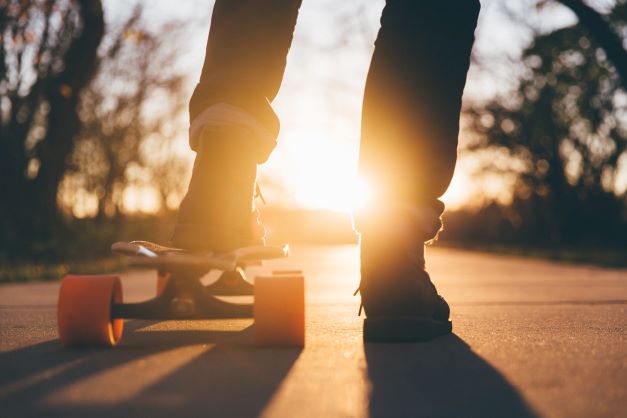A Public Lynching in Our Backyard
By: Rev. Dr. Velda Love, Lead for Join the Movement Toward Racial Justice Campaign and Minister for Racial Justice

By: Rev. Dr. Velda Love, Lead for Join the Movement Toward Racial Justice Campaign and Minister for Racial Justice

Many of the photos of Tyre Nichols that have come across our screens in the past weeks capture his beautiful smile. He reminds me of beautiful black men in my own family. His 4-year son will remember his father with love and admiration, a hard worker, and avid fan of skateboarding, as well as a provider, and protector. He will also be haunted by the memory of men in police uniforms with black skin like him being responsible for brutally beating his beloved father to death.
When I think about the time I’ve spent in Memphis, I think of it as a city of prominence, and one of the places where the Civil Rights Movement launched with the 1954 Supreme Court ruling in Brown vs. Board of Education that made segregation in schools illegal.
The national NAACP won the hard-fought court battle Brown v. Board of Education. This case ruled that applying the concept of “separate but equal” to public schools was not constitutional. While the ruling was supposed to end legal segregation in schools, most states and cities, including Memphis and Tennessee, developed ways to circumvent the law. Still, African Americans saw the ruling as the dawn of a new day.
Memphis is where the Rev. Dr. Martin Luther King, Jr. traveled to support the Sanitation Worker’s Strike. Its “I Am A Man” campaign resonated within Black communities working toward recognition of being seen, respected, and treated with dignity. “I’ve Been to the Mountain Top,” King’s last sermon, happened in Memphis. On April 4th King was assassinated in Memphis at the Lorraine Motel. Memphis is an important living landmark as a birthplace of protest for civil and human rights.
This movement history, this lineage of struggle for civil and human rights should have kept Tyre alive. The ongoing movement education that the history of Memphis compels, should have created a world where this kind of violence was not possible. And yet, we witness the persistence of white supremacy in the system of policing; these Memphis police officers’ actions failed in every way to respect the sacredness of Black lives.
If Rev. Dr. James H. Cone were alive, he might frame Tyre’s heartbreaking death within the theological reality of black life with stern yet truthful words for the actions of officers who are also descendants of African ancestors. He might also caution us to pay attention to the seduction of identifying with oppressive systems and institutions as sources of ideological power associated with toxic masculinity and white supremacy. Cone might name Tyre’s murder as a public lynching in our own backyard.
The videos repeatedly shown across the airways displays a public lynching so heinous and reprehensible that the human heart dare not look upon it over and over again. The repeated display of Tyre’s beating is not an honorable act of journalism, but a voyeuristic and sadistic spectacle, desensitizing people so we might accept the horror of police brutality as normal. It’s an offensive tactic that normalizes violence particularly against black and brown bodies.
Once again, black mothers, fathers, grandparents, and a village of caring adults will be talking with their children about staying alive while black. These conversations share wisdom of how best to get home when confronted with being profiled, followed, stopped, or pulled over while driving by a police officer. When black adults and children are stopped by police of every hue and ethnicity, fear may be the first response given the long history of policing in America. As a result, organizations and faith communities have been proactive in providing resources to help parents and youth navigate their public safety.
Videos like 10 Rules of Survival if Stopped by Police remain instructive, life-saving reminders. And yet, we know that sometimes these reminders and practices are not enough to protect black life. As Tyre’s body was laid to rest this week at the Mississippi Boulevard Christian Church in Memphis, Tennessee, we who believe in the right to live, walk, rest, play, and breathe without fear of police brutality and violence must do everything within our collective power to transform policing in America. How are you being called to respond faithfully and prophetically to this lynching in our own backyard?
SHARE THIS NEWS ARTICLE
Sign up to receive alerts about new stories and resources. You’ll also enjoy our Join the Movement newsletter, featuring changemaker profiles, reflections on current events in the movement toward racial justice, and more. Get sneak previews and information about upcoming events, workshops and webinars.

